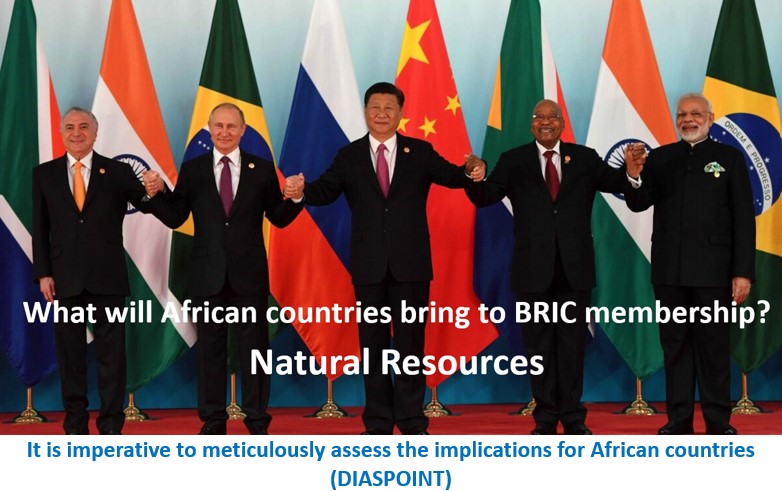BRICS group of nations, and why do they want to?
Post By Diaspoint | August 22, 2023

In recent years, the BRICS group of nations, consisting of Brazil, Russia, India, China, and South Africa, has emerged as a formidable presence in the global economy. With the significant strides achieved by the group, an increasing number of African countries have expressed a keen interest in becoming part of this influential alliance.
Analysts’ opinions regarding the tangible accomplishments of BRICS since its establishment in 2009 diverge. While one analyst maintains a wait-and-see approach to assess the group’s future potential, another asserts that BRICS has already surpassed expectations. However, some voices emphasize the need for a more realistic roadmap for the group.
In 2014, the BRICS nations established the New Development Bank (NDB), infusing it with an initial investment of USD 50 billion. This financial institution was conceived as an alternative to the dominant Western institutions like the World Bank and the International Monetary Fund (IMF), which have faced criticism for imposing stringent economic policies on developing nations. The NDB offers member countries a counterbalance, providing access to development financing without the constrictions associated with the World Bank and the IMF. In conjunction with this, the BRICS nations introduced the Contingent Reserve Arrangement, designed to offer financial aid to member states grappling with payment issues during times of economic turmoil.
This year’s BRICS summit, being held in Johannesburg from August 22-24, is expected to center around the discussion of expanding the group’s membership. However, concerns arise as not all current members appear to support this expansion. A South China Morning Post report reveals that India and Brazil are apprehensive about the prospect because of fears of diluting their existing influence within the bloc. India is particularly cautious, given that the inclusion of new members could potentially amplify China’s strategic influence, especially as Beijing maintains close ties with some of the potential new entrants, which include Algeria, Iran, Argentina, Ethiopia and Nigeria.
Read More from original source
